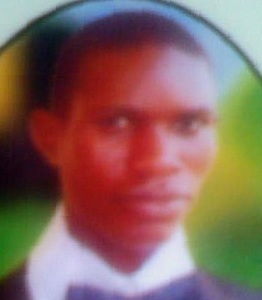An Exegetical Glimpse into the Pauline Usage of Charismata and Oikodomen in 1 Corinthians 12:1-7: A solution for Ecclesiastical Disunity in 21st Century
PneumaReview.com invites you to interact with this academic paper by Pastor Adeboye Godwin.
Abstract
Today it is most difficult to teach or write about the Holy Spirit. This is because there are several arguments, different teachings, various thoughts, different beliefs and divisions arising from the teaching on the Holy Spirit. The aspect of doctrine of Holy Spirit which has been the most controversial is the case for Spiritual Gifts. Spiritual Gifts is given to unite Christians, but it has been the major cause of conflict and ecclesiastical disunity.[1] There are two Greek words generally used to describe spiritual gifts. The first is pneumatikos, meaning “Spiritual things or things pertaining to the Spirit.” This word emphasizes the spiritual nature and origin of spiritual gifts. The other words often used to identify spiritual gifts is charisma, meaning “grace gift.” The word charisma (pl. charismata) emphasizes that a spiritual gift is a gift of God’s grace: it is not a naturally developed ability but rather a gift bestowed on a believer for God’s service (1 Cor. 12:1-7). The interpretation and discussion of the charismata have varied from the various extremes.

Pastor Adeboye Godwin
This research is purposeful. It is to remedy the misconceptions on the possession and exercise of spiritual gift in the community of believers. Nowadays, there appears to be much emphasis on the Holy Spirit, and charismata are gaining more prominence than ever before, it is expedient that Christians be taught the purpose and the appropriate use of charismata. The subject of spiritual gifts has aroused unprecedented interest in every religious circles. With almost universal appeal, the tide of charismatic theology has cut across all theological barriers and ecclesiastical institutions. This works reveals that the spiritual gifts are not given to engender pride, hierarchy and disunity in the church but for the purpose of building up the church and also that charismata are not end themselves but a means to an end, and that end is oikodomen (Building up of the body of Christ)
Introduction
The singular issue that has most divided the body of Christ today is the lopsided orientation about the proper usage and purpose of the Spiritual Gifts. The use of spiritual gifts can mar or make the church. Any casual survey of Christian bookstore and libraries will show that the subject of the Spiritual gifts is a “hot item nowadays.”[2] For the fact that 21st century christian ministry is pneumacentric (full of and centered around the manifestation of Holy Spirit) has made the issue of the Holy Spirit to be in the forefront. Over the last decades the volume of the books written on the Holy Spirit have sprang in to a large proportion. Peter Wagner’s prefatorial words affirms this current trends. He says “I need to make a good case for adding another book to the already too-long list of book on spiritual gifts.”[3] This shows that a lot has been said about the concept of Holy Spirit. Also, the Wagner’s assertion reflects that the most pneumatological concepts that has been widely discussed and demonstrated is the “Charismata.” Some of the questions that have been raised and misunderstood are: “what are the biblical methodology for the usage of charismata? what is the intention of God in giving out the charisma to some individuals? how can these charismata be appropriately utilized in the body of Christ? Should the charismata be theocentric or anthropocentric? How can egocentric notions be removed from the usage of charismata? and which of the charismata should be given the highest preeminence in christian body? Answers to these questions are important to how united the church will be. And how united the church is will affect the extent the church will go on the Great Commission.
Category: In Depth


